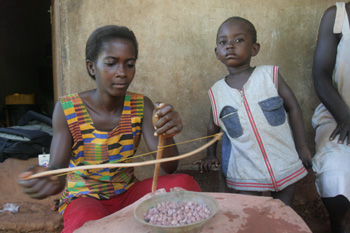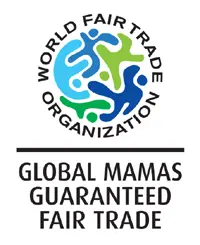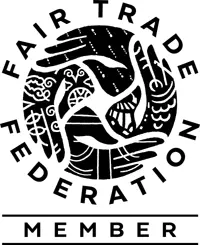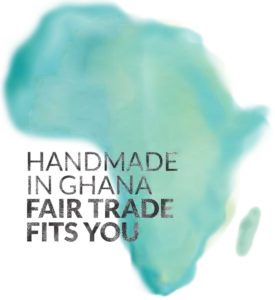By Greg Coyle

No one is entirely sure when bauxite beadmaking came to Abompe in Ghana’s Eastern Region. Over the years, a story has developed that has become, for many, an acceptable surrogate for the truth. It goes like this:
In the early 1900s a farmer turned up an old bauxite bracelet and necklace. Fascinated by his find, he took it to the village chief, only to have it dismissed as unimportant. Still, the farmer persisted, asking everyone he knew, but learning nothing. Finally, vaguely remembering having as a boy seen something similar from a nearby village, he broadened his search. He soon learned that Abompe had, like its neighbor, once produced many beads of this kind for a variety of uses before it eventually died out.
The disappearance of the beadmaking art in Abompe is, like so many other degradations of culture, credited to the colonial powers of the time. Actively discouraged as lazy and fruitless, the practice fell out of favor and was over the ensuing decades all but forgotten.
Abompe is today the only community in Ghana producing the unusual, dusty-brown beads. Among the legion of skilled artisans working in the village many can claim to be third- and fourth-generation beadmakers.
George and Paulina Obeng, a husband and wife beadmaking team, learned the art from their grandmothers. Together, they boast more than 30 years of experience. George Obeng, the chairman of a newly formed beadmakers group, has become the real organizing spirit behind the artisans working with Global Mamas.
As Obeng describes it, “Now Global Mamas places their orders with me. I then hand out the work to the beadmakers because I know the people and what they can do, and I know how much time it will take.”
Among those with whom Obeng works Mercy Baah is one who has distinguished herself by her creativity. Baah has been creating bauxite beads for more than 20 years. Having learned from her grandmother, she is now passing the knowledge on to her own daughter and granddaughter. “I have given birth to 10 children,” she says from the porch-cum-office of her home. “Eight are still alive, and I support all of them by making beads.”
When asked about Global Mamas, she says, “Global Mamas has brought good changes. Because of them I have more orders.” She offers a playful, toothless grin. “And I like more orders.”
Recent Peace Corps efforts, spearheaded through 2008 by volunteer Suzanne Hadley, are seeking to spread the word about the work being done by Baah, the Obengs and the other beadmakers in Abompe. The hope is that increased visibility will bring visitors and new markets.
Growth in bead sales could put some pressure on Sam Ofori. Ofori is a bauxite miner in Abompe. In fact, and incredibly, he is the only bauxite miner in Abompe. A one-time tailor in Nigeria, he returned to Ghana some years ago to farm, falling into mining as a means for augmenting his income. He now supplies the entire village with the brown rocks from which the artisans fashion their beads.
As second jobs go, bauxite mining is a rigorous one. First, you have a four-hour hike, much of it at a steep pitch uphill. Second, once on site the next four to five hours are spent in the dark, 20-feet underground, hacking out bauxite with a hand-made spade. When he can convince a partner to join him, this second person will work on the surface, hoisting up the rocks in a battered metal can attached to a line of raffia. If alone, Ofori must climb up top each time the bucket is full and pull up the rocks himself, before climbing back down to resume diggin
___________________________



